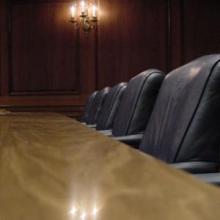Good Character Makes Good Leaders, BoB Attendees Told
Submitted by Rick Saia on

Your company may be growing its profits and expanding its customer base, but are your employees engaged to a level where they will do anything for you?
If you don't know, it's a good question to ask, according to Fred Kiel, a leadership consultant who recently published a book summarizing findings from a seven-year research project that examined the connection between the character of leaders and the bottom line.
Kiel, who talked about his research Tuesday before attendees at the Best of Breed Conference in Orlando, Fla., hosted by CRN's parent, The Channel Company, says a key difference between leaders with strong and weak character lies in "moral intelligence," which was also the title of a book he co-wrote in 2007. Moral intelligence, Kiel said, represents a combination of four human traits that are common among world cultures: integrity, responsibility, forgiveness and compassion.
If corporate leaders show more of those four traits, they're more likely to lead companies.
The study, detailed in Kiel's book "Return on Character," was conducted through surveys of 121 CEOs and employees of 84 of the companies they lead. The results distinguished "virtuoso" leaders, or those who came out on top, based on his research, and the "self-focused," or those on the bottom. Kiel found that virtuoso-led companies had:
• Five times greater return on assets (9.35 percent vs. 1.93 percent, on average);
• Twenty-six percent higher workforce engagement;
• Lower levels of risk as measured by audit fees and legal "events"; and
• A 20 percent greater advantage in strength of leadership skills.
Character, Kiel added, is represented by a combination of one's intentions with one's behavior. Everyone judges you by your behavior, he said, but nobody knows what your intentions are. He drew on the example of Richard Harrington, CEO of what was then Thomson Corp. (now Thomson Reuters) in 2001. After his company lost 11 employees in the Sept. 11 terrorist attacks, Harrington contacted the surviving spouses -- despite communication challenges shortly after the attacks -- and told them the company would pay the full salaries of their deceased spouses for two years and fund college tuition for all their children.
Asked whether he talked with his legal advisers before making that decision, Harrington answered, "No." Did he run it by the board? "No." He said, and "If they didn't like it, they could fire me. It was just the right thing to do."
Kiel's research found "a number" of similar leaders who had "that immediate impulse just to do the right thing that was in the interests of other people."
He was "acting automatically," Kiel said.






